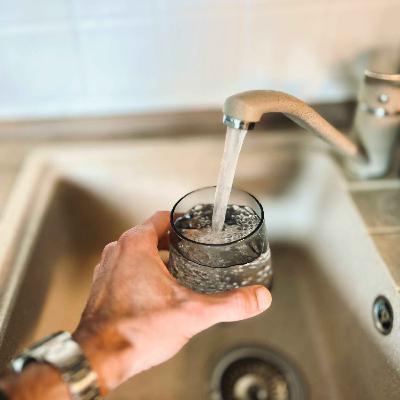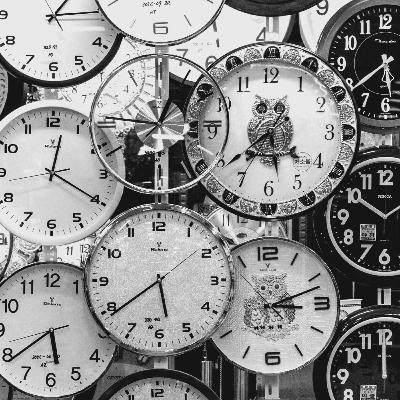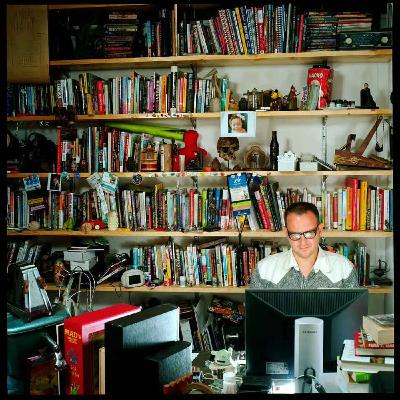Discover Tech and Science Daily | The Standard
Tech and Science Daily | The Standard

Tech and Science Daily | The Standard
Author: The Evening Standard
Subscribed: 129Played: 8,692Subscribe
Share
© Evening Standard Limited
Description
Daily bulletins reporting the latest news from the world of science and technology, from the Standard.
Hosted on Acast. See acast.com/privacy for more information.
1378 Episodes
Reverse
On this replay preview of Brave New World, Evgeny Lebedev is joined by Dr Aubrey de Grey — a pioneering biomedical gerontologist and co-founder of the SENS Research Foundation.Known for his radical views on ageing, Dr de Grey believes we can and should treat ageing as a medical condition, not an inevitability.In this fascinating conversation, Evgeny and Aubrey explore everything from the ethics of life extension and the science behind reversing cellular damage, to how society might change if ageing becomes optional.Listen to the full conversation on the Brave New World podcast here. Hosted on Acast. See acast.com/privacy for more information.
A flotilla of Indigenous leaders have made a symbolic journey from the glaciers of the Andes to Belém, Brazil in time for the COP30 climate summit.Their mission: to demand a greater role in climate talks and protections for their territories, as extraction industries and climate change press ever deeper into Indigenous lands.Super Typhoon Fung-wong has weakened after battering the Philippines this weekend.Wind speeds of around 115 mph dropped to between 80 and 100 mph as the storm moved northeast towards Taiwan.An international team of scientists has achieved a world-first, creating plasma 'fireballs' to discover how powerful jets from distant black holes stay stable.Pablo Bilbau, a postdoctoral research fellow at the University of Oxford, explained what they’ve been doing and whyAlso in this episode:China has partially lifted export controls on key computer chips used in car productionA new national forest has been confirmed for the Oxford-Cambridge corridorScientists say camels and llamas could help unlock new treatments for brain disorders Hosted on Acast. See acast.com/privacy for more information.
Elon Musk, already the world’s richest man, has had a record-breaking pay deal approved — one that could be worth nearly $1 trillion.At Tesla’s annual meeting in Texas, 75% of shareholders backed the move, giving Musk what’s believed to be the biggest compensation package in corporate history.But over the next decade, will he hit the huge goals needed to earn it?Sir Keir Starmer has told COP30 that the UK is “all in” on net zero.Speaking in Belem, the gateway to the Brazilian Amazon, the Prime Minister said clean energy is key to jobs, growth, and climate security.It comes as the UN warns 2025 is set to be the second or third hottest year on record, after an “unprecedented streak” of global heat.The University of Cambridge is offering a new, minimally invasive enzyme injection to treat a severe spinal disease in dogs — the first and only treatment of its kind in the UK.The injection has been said to have an exceptional success rate.It targets intervertebral disc disease, which affects around a quarter of dachshunds.We’ll hear from Professor Paul Freeman at Cambridge’s Veterinary School, who co-developed the treatment with colleagues at Texas A&M University.Also in this episode:The much-awaited GTA 6 has been delayed again, now expected in November 2026.Scientists warn that a common diabetes drug may reduce the benefits of exercise.Google announces its biggest-ever carbon removal deal, funding restoration of the Amazon rainforest through carbon credits. Hosted on Acast. See acast.com/privacy for more information.
Ever heard of “vibe coding”? It's been named Word of the Year by Collins Dictionary, but what does it mean?You can thank OpenAI's co-founder Andrej Karpathy, who came up with the phrase.The World Weather Attribution has released new data revealing that climate change significantly amplified Hurricane Melissa’s destructive winds and rainfall.We speak to the rapid study's co-author, climate scientist Theodore Keeping, from the World Weather Attribution team at Imperial College London.Three Chinese astronauts are stuck in space for longer than expected, after an unidentified object hits the return spacecraft.Also in this episode:UK energy supplier Tomato Energy has collapsedPrince William honours young environmentalists at Earthshot PrizeThe newly described species of toads that give birth to fully formed toadletsAI chatbots "suffer from brainrot" too Hosted on Acast. See acast.com/privacy for more information.
Marks & Spencer’s revealed the impact of a massive cyber attack earlier this year. The retailer says profits were hit hard when hackers took them offline at Easter, knocking out online sales and leaving shelves bare for weeks.Elsewhere, scientists in London are looking at whether wireless power could be used to keep lunar rovers running in space. The collaboration between Imperial College London and MSA Space is being funded by the UK Space Agency.Suze Cooper speaks to Professor of Electrical Energy Conversion at Imperial, Paul Mitcheson, about what it could mean for future space exploration.Also in this episode…Plans to block scam mobile calls from abroad within a yearIs Government red tape causing UK science and tech to ‘bleed out’?Scientists warn geoengineering could trigger droughts and hurricanesSky Live to be discontinued less than three years after launchWhatsApp officially arrives for Apple Watch wearersAn extra reason to look to the skies this bonfire night Hosted on Acast. See acast.com/privacy for more information.
OpenAI has signed a $38 billion (£29 billion) deal with Amazon.The seven-year partnership gives OpenAI access to Amazon Web Services. It’s the latest in a string of partnerships necessary to ensure what OpenAI CEO Sam Altman describes as the ‘massive, reliable compute’ needed to scale up AI.Elsewhere, UK scientists have developed a gel that encourages teeth to regrow their own enamel - something long thought impossible. We speak to Professor Alvaro Mata, Chair in Biomedical Engineering & Biomaterials at the University of Nottingham, about how it works and why it’s a breakthrough for oral healthcare.Also in this episode…Victims of ‘silent scandal’ pregnancy drug call for UK inquiryStudy shows walking 5,000 steps a day could slow Alzheimer’s-linked brain declineAmazon rolls out UK’s largest fleet of electric lorriesAre video game developers breaking the law by ‘switching off’ games people have purchased?The campaign calling on parents to get their kids moving this winterCan chimpanzees make rational decisions? Hosted on Acast. See acast.com/privacy for more information.
Water companies are being urged to clean up potentially harmful ‘forever chemicals’ in drinking water.High levels of per and polyfluoroalkyl substances have been discovered in UK water sources and while industry body Water UK says it’s still safe to drink - they are calling for a ban on the chemicals to avoid future problems.Also in this episode, The Bionic Awards are coming to London. Entries are now open for the inaugural event to be held in Shoreditch next year. We speak to founder of the awards and London Standard tech editor Alex Pell along with AI filmmaker Diane Laidlaw of Afro Futcha, about the importance of recognising AI creativity.Plus…A new £1.9million study will look at whether AI can help doctors make better decisions around how to treat prostate cancerNew research shows skipping breakfast might leave you feeling hungry but won’t impact your thinking skillsThe Microsoft glitch that’s waited 10 years for a fixA new sustainable tub for Cadbury’s Heroes and a change to the chocolate line-up Hosted on Acast. See acast.com/privacy for more information.
Behavioural scientist Coltan Scrivner, from the Recreational Fear Lab, explains the science behind our fascination with fear.In this episode:What is morbid curiosity?How our bodies react to horrorWhy are we drawn to shows like Terrifier 2 and Netflix’s Monster: The Jeffrey Dahmer StoryDo we lack empathy if we like scary films?Recurring themes in horror movies and why they’re usedThe morbid films a behavioural scientist watches…Can horror have a bad impact on our mental health, or is it beneficial?For all the latest news head to standard.co.uk Hosted on Acast. See acast.com/privacy for more information.
U.S. President Donald Trump has directed the Pentagon to restart nuclear weapons testing for the first time since 1992, citing the need to stay on an “equal basis” with Russia and China.Virgin is to take on the Channel Tunnel, challenging thirty years of Eurostar dominance.Ahead of the release of Small Achievable Goals on ITVX on November 1st, we join Canadian actress and writer, Meredith MacNeill, who stars as Kris in the show. Meredith talks about bringing menopause to the screen with humour and honesty.The Government confirms £55bn boost for science and tech research and development.Also in this episode:MAX conference: Adobe unveils a series of new AI-powered toolsMediterranean diet can help tackle IBS symptoms, trial findsAstronomers have made an unexpected discovery at the interstellar comet 3I/ATLAS — one of only three ever observedDictionary.com has chosen “6‑7” as its 2025 Word of the Year Hosted on Acast. See acast.com/privacy for more information.
Nvidia is poised to reach a $5 trillion dollar market value after its shares jumped 5% following a string of announcements at its annual GPU Technology Conference.Hurricane Melissa has hit Cuba after ferocious winds caused power outages and catastrophic damage across Jamaica.And why looking at art in galleries can provide immediate stress relief, with Dr Tony Woods from King's College London.Also in this episode:OpenAI completes shift to becoming for-profitMorning-after pill is now available for free in pharmacies across EnglandScientists conclude how corals rebuild themselves on the reefThree big cats have specialist CT scans to solve medical mystery Hosted on Acast. See acast.com/privacy for more information.
All main global operations are understood to be impacted, with the UK among those to see office roles axed.Storm hunters fly into Hurricane Melissa as Jamaica braces for 'storm of the century'.To hear our chat with Deputy Chief Meteorologist Dan Rudman, click here. From December, Meta, TikTok, and Snapchat will start blocking users under the age of 16 in Australia.And, why the British Library's 'Secret Maps' exhibition is so significant now, with Nick Dykes, Curator of Modern Map Collections. Plus, why Taylor Swift may even draw a crowd.Also in this episode:Turkey hit by a magnitude 6.1 earthquakeSuffolk on alert following a new bird flu outbreakCRISPR-engineered pig kidney keeps man alive for nine months Hosted on Acast. See acast.com/privacy for more information.
Hurricane Melissa is now Category 5, meaning it is the strongest storm to hit Jamaica since 1988.As of 5 a.m. EDT on Monday, maximum sustained winds of 160 mph were recorded.How destructive is Storm Melissa going to be? How much rainfall is expected to hit Jamaica, and has climate change played a role in its intensity?We speak to Deputy Chief Meteorologist Dan Rudman, from the Met Office.Also in this episode:Is the US finally closer to a TikTok deal?Rapid blood test for children ‘could spot sepsis and save lives’Microsoft reveals its latest AI-powered tools to search the webWhy “hangxiety” is very much real, according to science Hosted on Acast. See acast.com/privacy for more information.
From 2am on October 26th, the clock change will mark the end of British Summer Time (BST) and the start of Greenwich Mean Time (GMT).But when did the tradition begin? To find out more, we speak to the Curator of Time at Royal Museums Greenwich, Dr Emily Akkermans.Sir Keir Starmer has said digital IDs will “cut the faff”, in a bid to reverse scepticism for the scheme.To learn more about the government's proposed digital ID's, listen here.Plus, a biology teacher has become the first patient in the UK to receive a “gamechanger” therapy for multiple sclerosis (MS).Also in this episode:-OpenAI will be able to store data on British soil for the first time under a new Government deal-For the first time, questions about menopause will be included in NHS health checks-Amazon have unveiled 'Amelia', their AI-powered AR glasses for their delivery drivers Hosted on Acast. See acast.com/privacy for more information.
We're joined by Swizz Beatz, a GRAMMY-winning producer who’s worked with Beyoncé, Jay-Z, Lil Wayne, and Busta Rhymes.He’s also the co-founder of The Dean Collection, established with his wife, Alicia Keys.Swizz has announced a new global partnership with Qatar Airways - launching the Creative 100, a platform celebrating and connecting the world’s most visionary creatives.He also tells us about redesigning aeroplanes, why he's not afraid of artificial intelligence, and the one piece of tech he can’t live without when he's creating. Hosted on Acast. See acast.com/privacy for more information.
OpenAI has unveiled its new AI-powered web browser, ChatGPT Atlas, now available for Mac users and coming soon to Windows, iOS and Android.The browser lets you chat with ChatGPT while you surf the web, summarise pages, and even perform actions like booking flights — all designed to make browsing more interactive and personalised.Eurostar unveils its first-ever double-decker electric trains, set to run between London, Paris, Brussels and Amsterdam by 2031.Plus, a tiny eye implant helps people with advanced macular degeneration regain sight in a world-first trial.We speak to the trial’s lead investigator Mr Mahi Muqit, a consultant vitreoretinal surgeon at Moorfields Eye Hospital in London.Also in this episode:The Jaguar Land Rover cyberattack is now estimated to be the most economically damaging hack in UK historyElon Musk fires back at NASA’s chief as tensions rise in the new space raceStorm Benjamin set to batter the UK with 70mph winds and heavy rain later this weekMasked thieves pull off a daring daylight robbery at the Louvre, stealing royal jewels worth €88 millionAnd a glossy ibis is spotted in a new part of Scotland for the first time, as climate change shifts migration patterns Hosted on Acast. See acast.com/privacy for more information.
Experts are warning that women are being exploited by a growing ‘menopause gold rush’ as companies and influencers rush to give profit-driven advice.It’s led to a call for a national education programme to ensure women get clear, evidence-based support and advice.Meanwhile, UK scientists are hoping to join NASA in working on the Habitable Worlds Observatory - a new telescope designed to search for signs of life on distant planets.We hear from Dr Vincent Van Eylen, Associate Professor in Exoplanets at UCL’s Mullard Space Science Laboratory about the project and what it means for the UK’s role in future space exploration.Also in this episode:AI could give NHS staff back 400,000 hours a monthMPs are questioning why UK’s key online services rely on Amazon after yesterday’s major outageSpace debris that has fallen to Earth is thought to be from a Chinese rocketMicrosoft confirms next-gen Xbox is in developmentBingo, holidays and meals out are helping older men stay stronger for longerHear Rachelle Abbott's interview about the AWS outage from yesterday's Tech & Science Daily. She speaks with Antonio Weiss, a Senior Partner at The Public Services Consultants, and former Senior Digital Adviser to Sir Keir Starmer, about the internet disruption. Hosted on Acast. See acast.com/privacy for more information.
A huge internet outage caused widespread global disruption on Monday, with a number of major websites and apps experiencing significant service issues.The issue was linked to a problem on cloud computing provider, Amazon Web Services (AWS). Major organisations such as HMRC, Lloyds Bank, Ring Doorbell, Snapchat, Slack, and Fortnite were among those affected, with outage monitoring website Downdetector reporting a massive spike in errors, 6.5 million in total worldwide.Tech & Science Daily spoke to Sir Keir Starmer’s former Senior Digital Adviser, Antonio Weiss, who is now a senior partner at The Public Services Consultants.Also in this episode:-Why European astronauts are training to fly helicopters ahead of lunar missions…-Alongside Cate Blanchett, The King has hailed the work of Kew Gardens' Millennium Seed Bank 25 years after it opened-Birth of rare female eastern mountain bongo is a ‘significant milestone’ for species Hosted on Acast. See acast.com/privacy for more information.
Enshittification: Why Everything Suddenly Got Worse and What To Do About It by digital activist Cory Doctorow is now out in hardback.In his new book, Cory explains why the internet is getting worse - and who is behind it.The Standard’s Will Rogers-Coltman sat down with Cory to dig a bit deeper.Will joins us on the podcast to tell us what Enshittification is, and why Cory thinks AI is heading for a “ghastly crash”.Also in this episode:A ‘game-changing’ HIV prevention jab will be offered in England and WalesAround 300,000 military veterans are now able to download their digital ID cardsThe five plants to protect your home from flood damage, according to DefraOpenAI pauses Sora video generations of Dr Martin Luther King Jr'Growing evidence that students achieve higher grades when using AI to study'- PearsonThe number of bees at risk of extinction in Europe Hosted on Acast. See acast.com/privacy for more information.
Thousands of people have alleged that they, or a family member, developed forms of ovarian cancer after using Johnson’s Baby Powder — and are now seeking damages at the High Court in London.The pharmaceutical giant has been accused of knowingly selling talcum powder in the UK that was contaminated with asbestos.To find out more about the case and what comes next, we spoke to The Standard’s courts correspondent, Tristan Kirk.We also spoke to Dr Adam Clancy, lecturer in Materials Chemistry at UCL, to learn more about the mineral talc, its connection to asbestos, and its potential effects on the human body.Plus, Apple has introduced its new M5 chip across the iPad Pro, MacBook Pro, and Vision Pro.Health officials have also announced that newborn babies in England will be routinely screened for a rare genetic condition that can cause long-term health problems if left untreated.Also in this episode:UK railways get a brand new clock design for the first time in half a centuryThe Asus ROG Ally X handheld goes up for pre-orderWhy experts are calling for an end to the “shrink it and pink it” approach to women’s running shoesThe ‘magical’ moment a 3,000-year-old secret of the Peebles Hoard is revealed Hosted on Acast. See acast.com/privacy for more information.
Scientists have found a way to “see” anxiety in the brain.This is the first study of its kind looking at the intense "avoid-avoid conflict" anxiety.Participants took part in a video game-style task, which was designed by PhD student Ben Stocker - who joins us to discuss the findings in more detail.Meta has introduced a PG-13 cinema-style rating for teenagers using Instagram.And an image of a rare hyena in a ghost town wins Wildlife Photographer of the Year.Also in this episode:-Scientists have warned the planet has reached its first catastrophic climate tipping point-OpenAI’s ChatGPT will soon be able to have erotic conversations with users-And new analysis of Ice Age fossils suggests hippos lived in Central Europe much later than previously thought Hosted on Acast. See acast.com/privacy for more information.

























please remove the distraction of music if you could.. otherwise it's great
@4:01 Note : It's surface water dissolved oxygen instead of "surface water dissolved and oxygen"